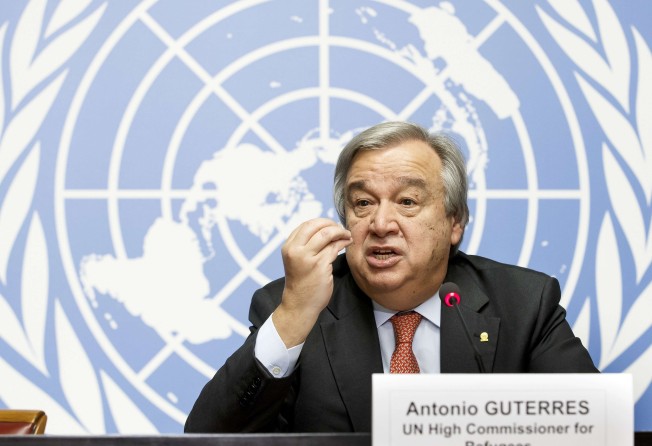Choice for UN chief offers hope the body can meet the many challenges of today
Antonio Guterres brings experience reforming the refugee agency as well as leading his country to a global body needing a leader able to forge deals

The first elected head of the UN, Norwegian politician Trygve Lie, found the role so difficult that he resigned and, when handing over to his successor, said it was “the most impossible job on this Earth”. More than six decades and eight secretaries general later, the position has got no easier, as Portugal’s Antonio Guterres will find out when he replaces Ban Ki-moon early next year. A huge task awaits him, with the world’s powers divided on a host of issues and the body in deep need of reform. The rare show of unity of the 15 members of the Security Council in choosing him is a positive sign that he will at least be given a chance.
Guterres, 67, was a surprise choice for outsiders, who had been expecting the next secretary general to be a woman. Russia, the current president of the Security Council and one of the five permanent members with veto power, had also said it wanted the chief to be from eastern Europe. With seven of the 13 candidates female and several highly qualified, it seemed the glass ceiling for the UN’s top job would, after 71 years, finally be broken. There has obviously been disappointment in some quarters that that has not happened, but even those who lost out have conceded that after a process that was more transparent than usual, with open hearings and straw polls, the best person for the job was selected.
There is no disputing Guterres’ qualifications. His record as the UN High Commissioner for Refugees at the time of the worst refugee crisis since the second world war and seven years as prime minister of Portugal, during which Macau was returned to China, won him great respect. Under his direction, the refugee agency was made leaner and its ability to respond to crises improved. But it was for his ability to communicate with the world’s rich donors to help those fleeing disasters and conflicts that earned him the greatest praise.
Those are strengths that the UN more than ever needs in its leader. He has the experience to deal with the migration crisis, which involves 65 million refugees. But divisions in the Security Council run deep and challenges including the war in Syria, North Korea’s nuclear intransigence and terrorism require brokering compromise and forging agreements that have too often been lacking. Even when deals are struck, the overblown UN bureaucracy can get in the way, so its operations have to be streamlined and updated.
The UN needs a leader able to forge deals and mobilise coalitions. Guterres offers that hope.